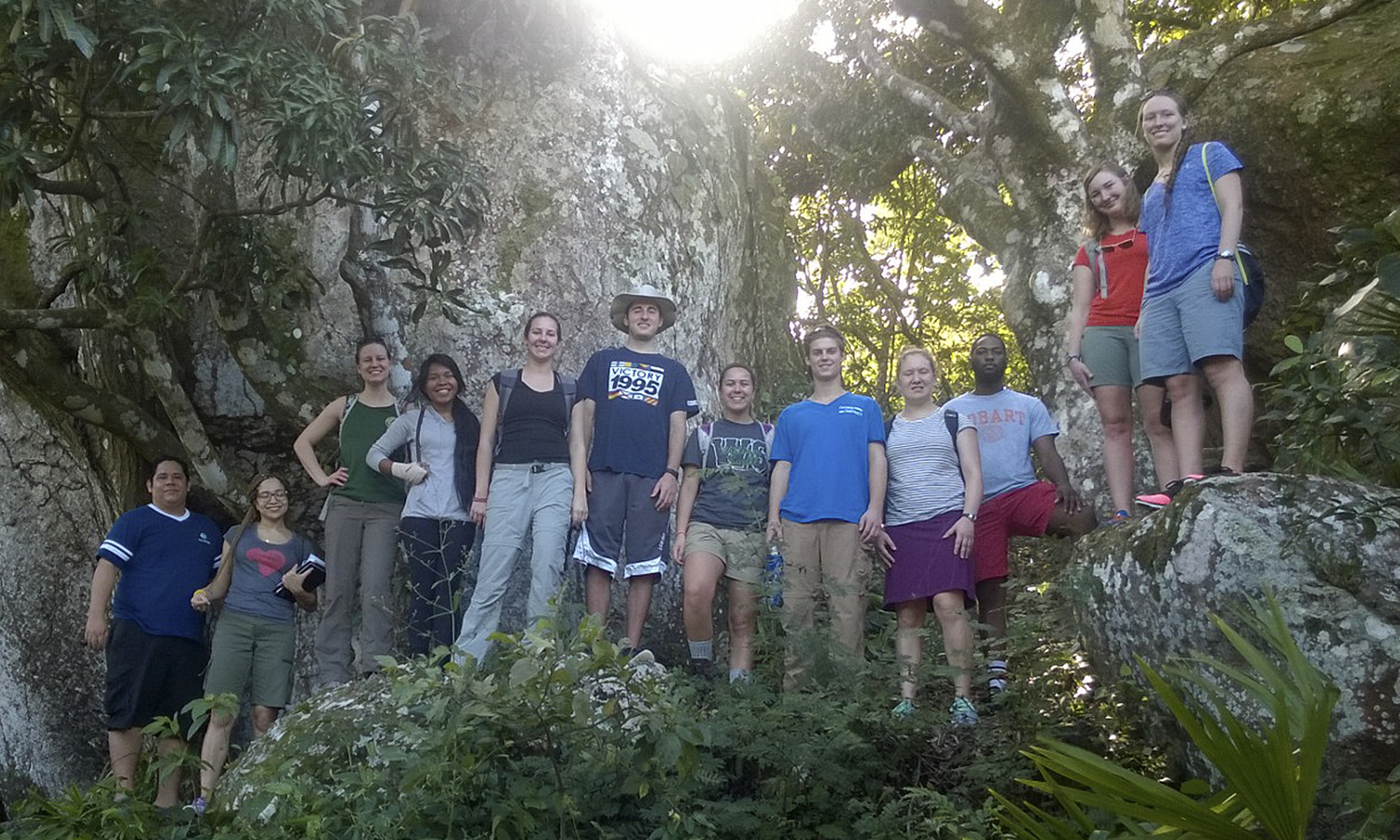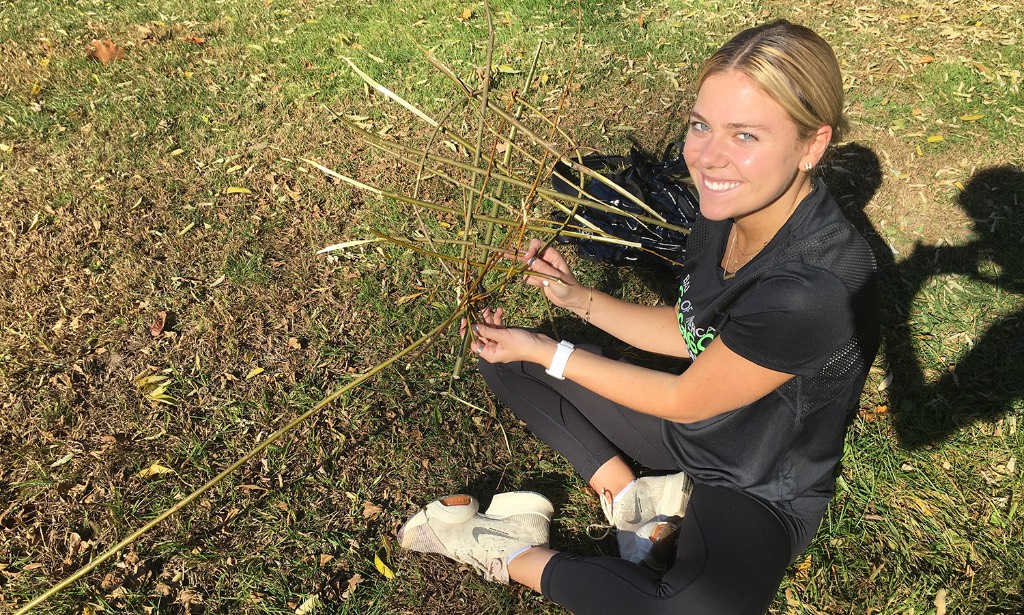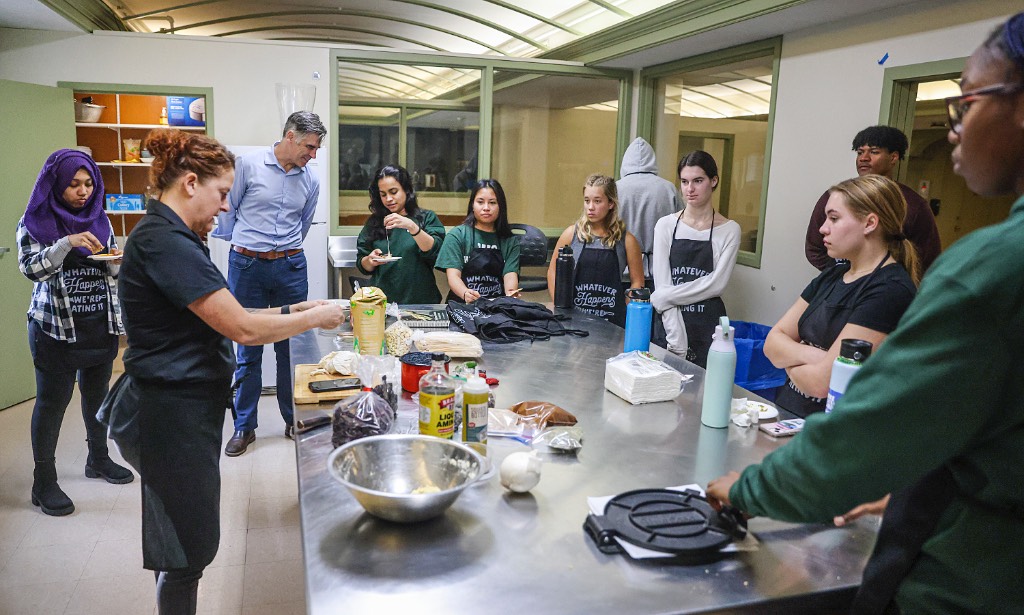Explore all the ways culture impacts humans and humans impact culture.
ANTH 110 introduction to cultural anthropology
Explore the anthropological understanding of human society through ethnographic case studies of particular societies where the interrelations of kinship, economics, politics and religion are stressed.
ANTH 282 NORTH AMERICAN INDIANS
Explore the experiences and sociocultural systems of past and present indigenous American peoples north of Mexico. Study relationships between ecological factors, subsistence patterns, modes of social organization, language, architecture, art, gender relations, ways of knowing, and religious beliefs.
ANTH 354 FOOD, MEANING, VOICE
Unravel the meanings behind food and explore the anthropological approaches to the study of food and cuisine.
ANTH 330 The anthropology of Creativity
Survey various anthropological perspectives on the power of individuality, interpretation, resistance and imagination in the aesthetic process of creation.
ANTH 260 medical anthropology
Explore the interconnected cultural, social, political, historical and economic dimensions of illness, health and healing in diverse human contexts
anth 218 it belongs in a museum
This course surveys several controversies and crimes in recent and contemporary anthropological and historical collecting.
If you like the focus of Anthropology and want to add insights from Sociology, consider majoring in Anthropology and Sociology. You’ll get a chance to take courses in both fields and leave with an even stronger holistic understanding of human culture and society.
Critical Museum Studies
Investigate the histories of practices of museums from a decolonial perspective while building the skills necessary to work in the industry through the Critical Museum Studies minor. You'll get to follow tracks like history museums and art museums and galleries that will allow you to focus on the issues and practices most relevant to the type of cultural space that most interests you. Students in all tracks gain experience with installation techniques, designing, cataloging, collections management, and writing exhibit labels. You'll leave prepared to work in and think critically about a variety of fields.
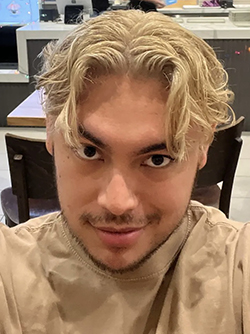

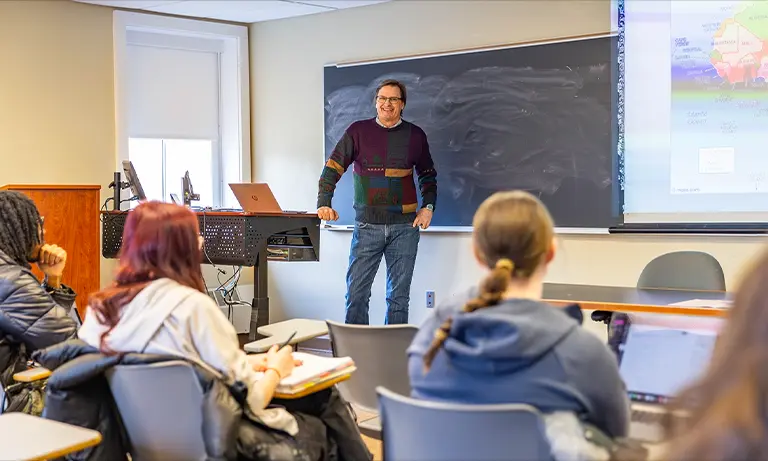



![$intro-image[2]/descendant::img/@alt](/images/academics/anth/header8.jpg)
